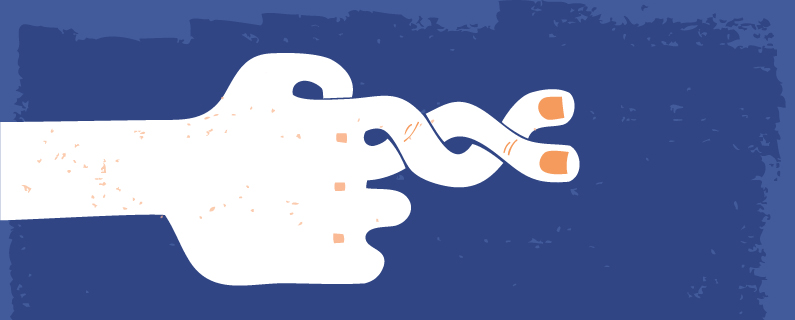
No one wants to say “I was wrong” or “I don’t know how to do that” in a professional setting. No matter what industry you’re in, admiting your own shortcomings is really difficult and frustrating. We don’t want to present ourselves as anything less than perfect, especially to the people paying for our services.
Why do so many professionals, especially those in creative industries, feel this way? I couldn’t ever really put my finger on it until I read Sean McCabe and Ben Toalson’s conversation from a podcast episode titled “Defeat Imposter Syndrome & Stop Feeling Like a Fraud.”
I’m going to summarize the general idea and what I took away from it, but I would highly recommend reading the entire transcript or listening to the podcast.
“Imposter Syndrome” is basically the idea that no matter how many years you spend in a career, how many awards you win, or how much talent you have, it never feels like enough. You know there is always someone out there better, faster and further along than you, and it can really make you feel inadequate at times. There’s always something out there that we don’t know how to do yet.
It’s somehow both alarming and comforting knowing most people feel this way, even those who are well known in their industry. It’s a little mind blowing to think someone with ten more years of experience under their belt still feels like an imposter at times. However, it’s also nice to know when I’m in a spot where I’m struggling to figure out a solution or design something the way I want, I’m not the only one.
As frustrating as these feelings can be, a bit of Imposter Syndrome can be a positive thing. First and probably most importantly, it shows you care. I personally know several people who have been working at jobs for five or more years and loathe what they do. They don’t particularly care about the work they put out, as long as it gets them paid. This is a bad habit to get into because clients and employers can often see this negativity in the final product. Being self-aware and challenging yourself to do better is a good way to stay on your toes, and ensure your work is the best it can be.
If you’re one of the people who worries if you’re doing enough, you’re probably also someone who realizes there is always something new to learn. You’re fully aware there is room to improve and that’s an exciting thing, especially in a creative industry. Hypothetically, if you were to “reach the top” and master everything, that would become very dull. I imagine most of the people we look up to are continuously learning new skills and techniques, and wouldn’t ever dream of becoming stagnant in their careers.
You can also think of it this way. You may feel like an imposter for not knowing everything under the sun, but it makes you human, and people like working with those they find relatable. Your relationships will be more honest if you sell yourself as a skilled professional, but not a machine. Let your clients know your strengths and admit when you don’t have experience in a particular situation. Having these conversations can help you pinpoint areas you want to work on next. One phrase from the podcast that resonated with me the most was “People don’t internalize your message and receive it unless it feels like you care about something.” This is certainly true for me, and I assume it’s true for my clients as well.
The most important thing to keep in mind is that your professional experiences have value. Admitting you aren’t a master of all trades doesn’t make you a fraud, it makes you realistic.
